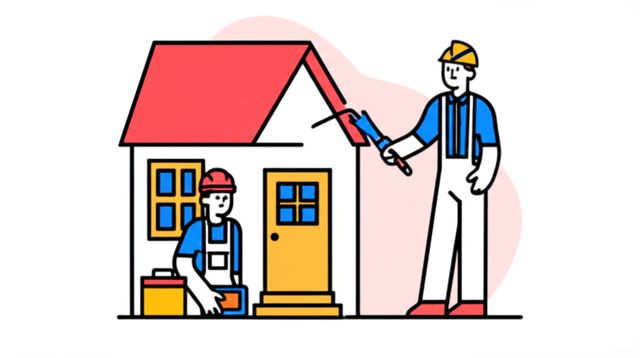Home Inspector
Home Inspectors are skilled in evaluating the condition of residential and commercial properties. They inspect the structure, systems, and components of a property to determine if there are any defects or areas in need of repair. The role requires extensive knowledge of building codes and construction practices, as well as strong communication skills to convey their findings clearly to clients.
Educational Requirements
While there are no formal educational requirements to become a Home Inspector, many employers prefer candidates with a background in architecture, engineering, or construction. There are also several certification programs available that can provide the necessary training and knowledge.
Skills and Experience
Successful Home Inspectors possess a strong understanding of building materials, construction methods, and building codes. They must be able to identify and assess potential problems with a property, both visible and hidden. Communication skills are also essential, as Home Inspectors must be able to explain their findings clearly and effectively to clients.
Career Growth
Experienced Home Inspectors may advance to roles with more responsibility, such as lead inspector or manager. They may also specialize in a particular type of inspection, such as commercial properties or environmental inspections.
Transferable Skills
The skills developed as a Home Inspector can be transferred to other careers in the construction industry, such as project management or construction management. The ability to assess the condition of a property and identify potential problems is valuable in a variety of roles.
Day-to-Day Responsibilities
The day-to-day responsibilities of a Home Inspector include:
- Inspecting the exterior and interior of a property
- Evaluating the condition of structural elements, such as the foundation, walls, and roof
- Assessing the condition of mechanical systems, such as the electrical system, plumbing, and HVAC system
- Identifying potential health and safety hazards
- Writing a detailed report of their findings
Challenges
Home Inspectors face several unique challenges, including:
- The need to be constantly up-to-date on building codes and construction practices
- The potential for liability if they miss a defect or problem with a property
- The need to work in potentially dangerous conditions
Projects
Home Inspectors may work on a variety of projects, including:
- Pre-purchase inspections
- Pre-listing inspections
- Insurance inspections
- Environmental inspections
- Commercial property inspections
Personal Growth Opportunities
Home Inspectors have the opportunity to develop their skills and knowledge through continuing education and training. They may also specialize in a particular type of inspection, or become certified in a specific area.
Personality Traits and Interests
Successful Home Inspectors typically have the following personality traits and interests:
- Strong attention to detail
- Analytical and problem-solving skills
- Good communication skills
- Interest in construction and building codes
Self-Guided Projects
Individuals interested in a career as a Home Inspector can prepare by completing self-guided projects, such as:
- Researching building codes and construction practices
- Attending home inspection workshops or seminars
- Shadowing a Home Inspector
Online Courses
Online courses can be a helpful way to learn about the field of Home Inspection and prepare for a career in the field. Online courses can provide students with the opportunity to learn about building codes and construction practices, as well as the skills and knowledge necessary to identify and assess potential problems with a property. Online courses can also provide students with the opportunity to interact with experienced Home Inspectors and ask questions about the field.
While online courses can be a helpful tool for preparing for a career as a Home Inspector, they are not a substitute for hands-on experience. In order to be successful in this field, it is important to gain practical experience through internships, apprenticeships, or other opportunities to work with experienced Home Inspectors.


